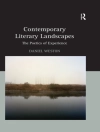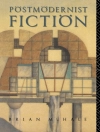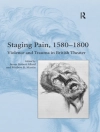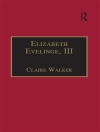These essays explore the impartial critical outlook American writers acquired through their experiences in Europe since 1850. Collectively, contributors reveal how the American writer’s intuitive sense of freedom, coupled with their feeling of liberation from European influences, led to intellectual independence in the literary works they produced.
Tabla de materias
Foreword; Diane Johnson Introduction; Ferda Asya 1. The Search for Legitimacy in Nathaniel Parker Willis’s Paul Fane; Udo Nattermann 2. ‘God permits the tares to grow with the wheat’: E.D.E.N. Southworth in Great Britain, 1859-1862; Ann Beebe 3. Gertrude Atherton’s Europe: Portal or Looking Glass?; Windy Counsell Petrie 4. The London Making of a Modernist: John Cournos in Babel; Marilyn Schwinn Smith 5. Toward a Brighter Vision of ‘American Ways and Their Meaning’: Edith Wharton and the Americanization of Europe After the First World War; Jenny Glennon 6. American Writers in Paris Exploring the ‘Unknown’ in Their Own Time: Edith Wharton’s In Morocco and Diane Johnson’s Lulu in Marrakech; Ferda Asya 7. ‘Homeland strangeness’: American Poets in Spain, 1936-1939; Robin Vogelzang 8. Fulbright Poems: Locating Europe and America in the Cold War; Diederik Oostdijk 9. Allen Ginsberg and the Beats in Literary Paris, or Apollinaire through the Door of Ginsberg’s Mind; Richard Swope 10. Almost French: Food, Class, and Gender in the American Expatriate Memoir; Malin Lidstrom Brock
Sobre el autor
Ann Beebe, University of Texas at Tyler, USA Jenny Glennon, University of California, Berkeley, USA and Brasenose College, Oxford University, UK Malin Lidström Brock, Luleå University, Sweden Udo Nattermann, University of Indianapolis, USA Diederik Oostdijk, American Literature at VU University, the Netherlands Windy Counsell Petrie, Colorado Christian University, USA Marilyn Schwinn Smith, Five Colleges, Inc., USA Richard Swope, University of Puerto Rico-Rio Piedras, Puerto Rico Robin Vogelzang, Katholieke Universiteit Leuven, Belgium












